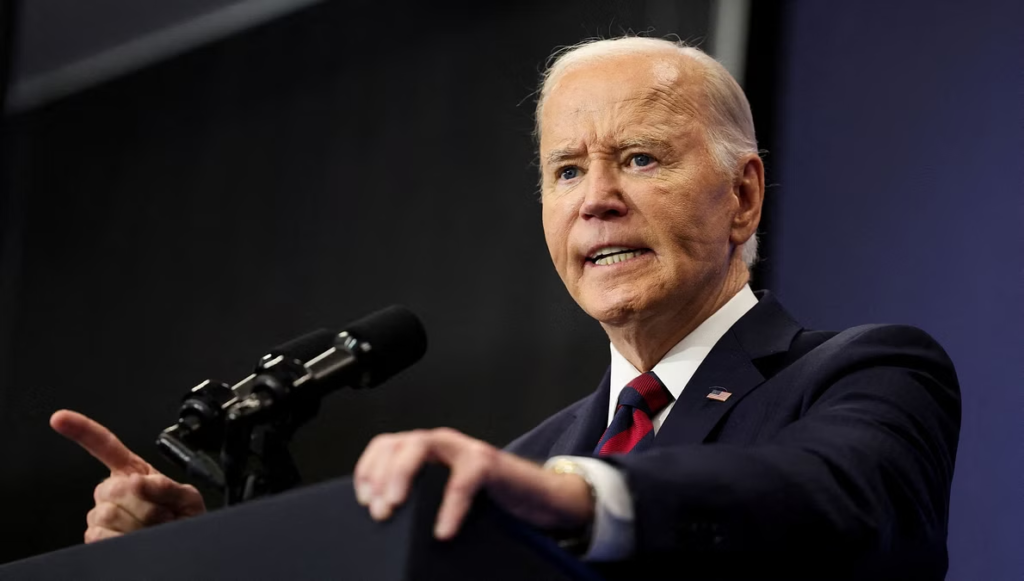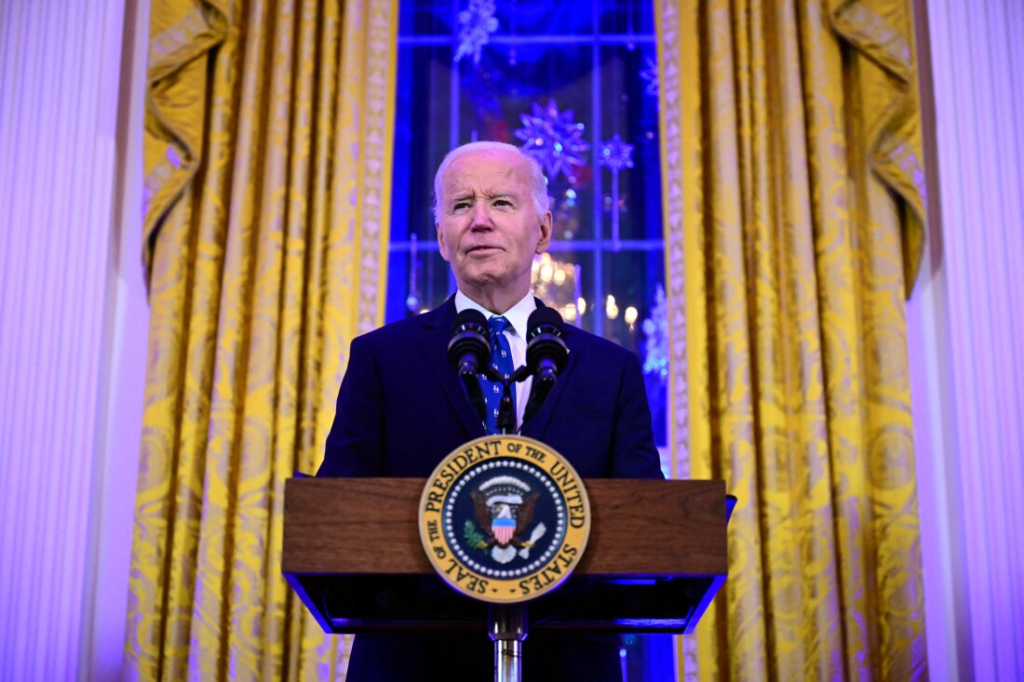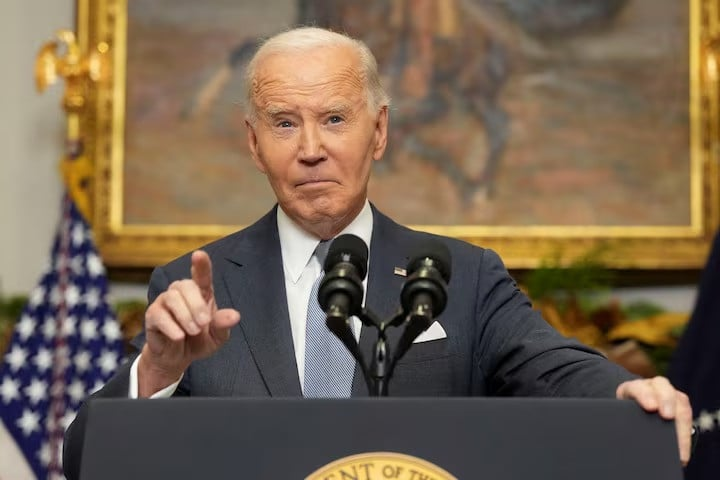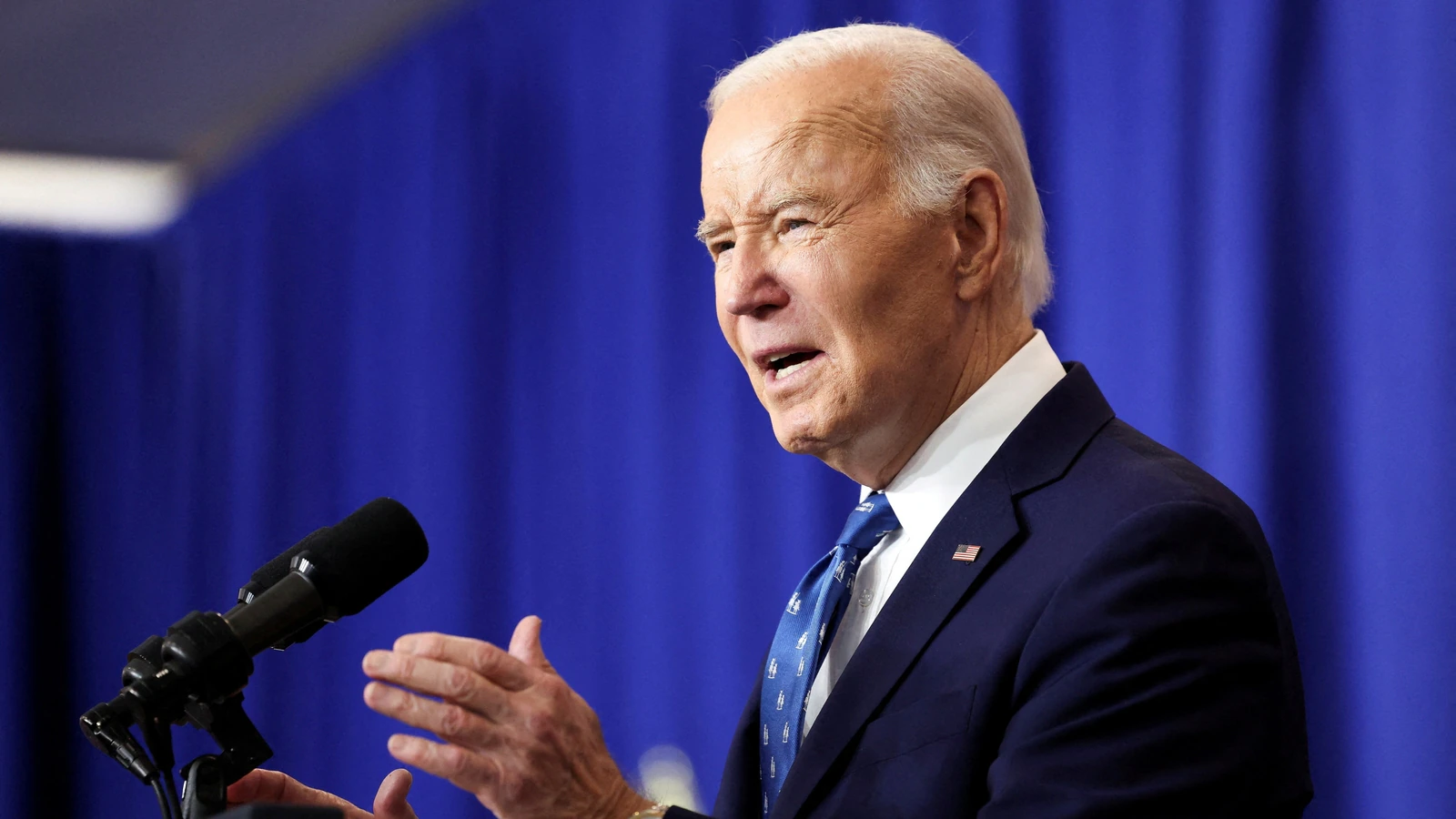The US President Biden’s recent clemency decisions mark a major shift in federal criminal justice policy, leading to both support and criticism.
President Joe Biden has made a groundbreaking decision to commute the sentences of 37 out of 40 federal death row inmates, switching their punishment from death to life in prison without parole.
This move comes as part of his continued efforts to distance the federal government from the use of capital punishment, a stance he has firmly supported throughout his presidency.
While Biden’s decision has been lauded by some as a necessary step toward justice reform, it has also been met with intense criticism, particularly from those who argue that it overlooks the rights of victims and their families.
This decision is not just symbolic; it also reflects Biden’s broader policy agenda, which includes halting the federal use of the death penalty—a position that was reiterated in a statement accompanying the commutations.
Biden has consistently called for the abolition of the death penalty, arguing that its application is deeply flawed and disproportionately impacts marginalized communities.
Read : Watch: Trump Criticizes Biden Over G7 Appearance in Italy – “He Had No Idea Where He Was”
Yet, despite this action at the federal level, Biden’s decision does not affect state-level death sentences, where more than 2,000 individuals remain on death row across the United States.
The Scope and Implications of Biden’s Decision
The commutation of sentences for 37 federal death row inmates is a significant shift in the United States’ criminal justice system, where the death penalty has been a longstanding tool for punishment.
The decision, which grants life imprisonment without the possibility of parole to those previously facing death, reflects Biden’s position that the federal government should cease its use of the death penalty. His actions contrast sharply with the policies of his predecessor, President Donald Trump, who oversaw a wave of federal executions in the final months of his administration.
In his statement, Biden expressed a strong belief in the inherent flaws of the death penalty, emphasizing that it does not serve as an effective deterrent to crime and is often used in ways that are unjust.
Read : Greenland Is Not for Sale: Country Leaders in Response to Donald Trump
He pointed to the disproportionate impact of the death penalty on people of color and those who cannot afford adequate legal defense, suggesting that the system is fundamentally broken.

The decision to commute these sentences has been welcomed by human rights groups and criminal justice reform advocates, who see it as a sign of progress toward a more equitable system. These commutations also reflect Biden’s broader approach to justice reform, which seeks to address systemic inequalities within the legal system.
At the same time, some of the clemency recipients have made public statements expressing their relief at the decision, with one inmate, Billie Allen, sharing that he felt “great relief” knowing he would no longer face execution.
Victims’ Families and Public Response to the Commutations
Despite the positive reception from some quarters, Biden’s commutations have sparked strong reactions from the families of victims, who view the decision as a betrayal of justice.
One such example is Heather Turner, whose mother was killed in a bank robbery in South Carolina in 2017. Turner expressed deep frustration and hurt upon learning that the individual responsible for her mother’s death would not face the death penalty, as originally sentenced.
Turner’s anger is shared by many victims’ families who feel that the commutations undermine the severity of the crimes committed. For these families, the death penalty represents the ultimate form of justice—a punishment that is fitting for the most heinous acts.
The decision to commute sentences, particularly in high-profile cases such as those involving the Boston Marathon bomber, Dzhokhar Tsarnaev, and the shooter responsible for the 2015 Charleston church massacre, Dylann Roof, has ignited a debate about the meaning of justice and the role of punishment in the American legal system.

These emotions were also echoed by Senator Tom Cotton, who criticized Biden’s decision as being politically motivated. Cotton’s statement on social media highlighted his belief that the commutations were part of a broader trend within the Democratic Party to side with criminals rather than their victims.
According to Cotton, the commutation of sentences for those convicted of horrific crimes undermines the social contract and shows a lack of concern for public safety and order.
Nevertheless, Biden’s actions have a legal foundation. Under the US Constitution, the President has the power to issue pardons and commutations for federal crimes. These decisions are final and cannot be overturned by a future administration.
Biden’s statement also emphasized his opposition to any attempt by a future administration, such as that of President-elect Donald Trump, to reinstate federal executions. Biden’s decision, therefore, has both immediate and long-term implications for the direction of federal criminal justice policy in the United States.
The Future of the Death Penalty in the United States
Biden’s decision to commute the sentences of 37 federal death row inmates represents the latest chapter in the ongoing national debate over the use of the death penalty in the United States.
While the number of states that have abolished capital punishment has been growing in recent years, the death penalty remains a highly contentious issue in many parts of the country.
As of now, 23 states have abolished the death penalty, while others, including California, Pennsylvania, and Oregon, have imposed moratoriums on its use.

These states have chosen to move away from the death penalty due to concerns about its fairness, its cost, and its potential for wrongful convictions. However, many states, particularly in the South and Midwest, continue to carry out executions, and there is significant public support for the death penalty in these regions.
In this context, Biden’s actions at the federal level are significant, but they do not signal an end to the death penalty in the United States as a whole. Instead, they reflect a growing divide between federal policy and state practices.
The next phase in this debate will likely center on whether states will follow the federal example and move to abolish the death penalty or whether there will be a resurgence in its use, particularly if Republican lawmakers, such as Senator Cotton, gain more influence in the coming years.
Biden’s Clemency Decisions and Their Impact on Criminal Justice Reform
Biden’s commutation of death sentences is only one part of his broader agenda for criminal justice reform. In addition to the 37 federal death row inmates, Biden has also issued hundreds of pardons and commutations for individuals convicted of non-violent offenses, particularly drug-related crimes. These measures aim to address the over-incarceration problem in the United States, which has disproportionately affected minority communities.
One notable case in this wave of pardons is the commutation of the sentence of Len Davis, a former police officer from New Orleans who was convicted of operating a drug ring and arranging a murder.

Davis’ commutation has sparked controversy, with some arguing that he should not receive clemency given the gravity of his crimes. However, Biden’s decision aligns with his broader philosophy that the criminal justice system should focus on rehabilitation rather than punitive measures alone.
In the coming years, it will be interesting to see whether Biden’s stance on the death penalty and his approach to criminal justice reform will continue to influence federal and state policies.
As more states move toward abolishing the death penalty and increasing their focus on rehabilitation, Biden’s actions may help to shift the national conversation in favor of a more progressive and equitable criminal justice system.
Biden’s decision to commute the sentences of 37 out of 40 federal death row inmates represents a landmark moment in the ongoing debate over capital punishment in the United States. While his actions have been met with both praise and criticism, they serve as a reflection of his broader vision for a more just and equitable criminal justice system.
Whether or not this shift in policy will extend beyond the federal level remains to be seen, but Biden’s leadership in this area is a clear sign that the debate over the death penalty in America is far from over.

